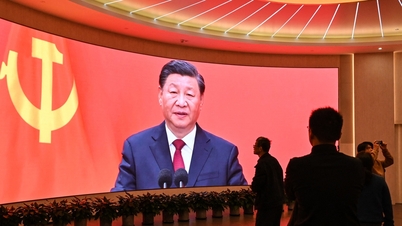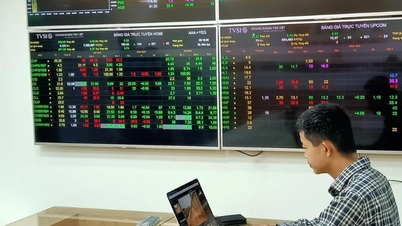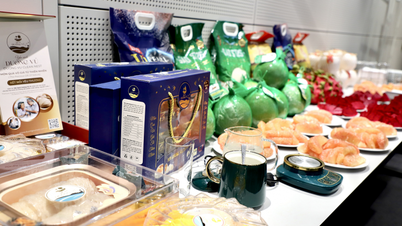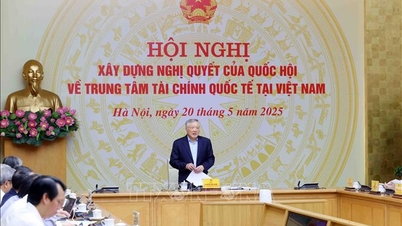A sharp drop in pork prices sent China's consumer price index tumbling in October, despite authorities seeking to boost domestic demand.
China's consumer price index (CPI) fell 0.2% in October from a year earlier, the National Bureau of Statistics (NBS) announced on November 9. Compared to September, the October CPI remained unchanged.
Core inflation (excluding food and fuel prices) also increased by only 0.6% in October, lower than the 0.8% increase in September. This shows that China's fight against deflation is still persistent. The risk of not reaching the 3% inflation target this year is also increasing.
Meat prices fell 17.9% in October, mainly due to a 30.1% drop in pork prices, the NBS said. Non-food prices rose 0.7%.

People shop at a market in Beijing, China, in August 2023. Photo: Reuters
The producer price index (PPI) fell for the 13th consecutive month, falling 2.6% in October compared to the same month last year. This was a faster rate than in September.
Deflation is defined as a sustained and large-scale fall in the prices of goods and services over a period of time. This is not a positive thing for the economy . Because when consumers and businesses delay spending in anticipation of further price falls, economic activity is stifled.
Chinese markets were quiet today after the CPI data. The CSI 300 index and an index tracking livestock stocks were almost flat. The yuan lost 0.1% against the dollar.
China’s economy has sent mixed signals recently, leaving economists debating whether the country can meet its target of around 5% growth. China’s CPI fell 0.3% in July, then rebounded in August and remained flat in September. Before that, the index had been on the verge of falling for several months.
China's GDP grew by a better-than-expected 4.9% in the third quarter from a year earlier, beating economists' forecasts of 4.6% in a Reuters poll. That followed 4.6% growth in the first quarter and 6.3% in the second.
Industrial output and retail sales both rose in September. The unemployment rate fell. However, real estate investment fell 9% in the first nine months of the year.
The International Monetary Fund (IMF) this week raised its growth forecast for China to 5.4%, thanks to the authorities’ aggressive support policies. China has loosened monetary policy and eased restrictions on home purchases to stabilize the property market.
Ha Thu (according to Reuters, FT)
Source link







![[Photo] Prime Minister Pham Minh Chinh chairs conference to promote public investment growth momentum](https://vphoto.vietnam.vn/thumb/1200x675/vietnam/resource/IMAGE/2025/5/20/7d1fac1aef9d4002a09ee8fa7e0fc5c5)
































































































Comment (0)